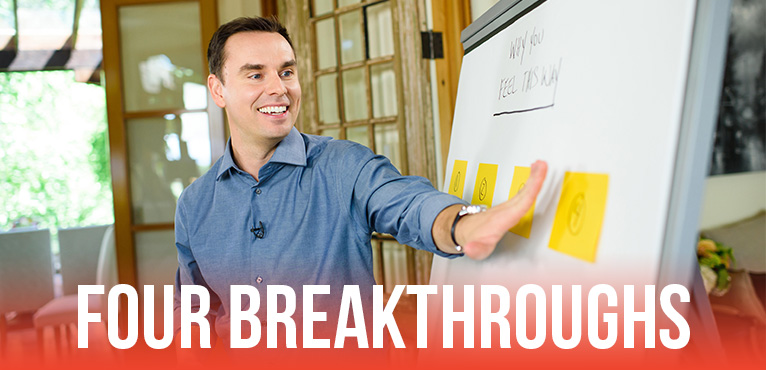SUMMARY
- “Your job is to take the energy of life that can sometimes seem negative and transform it. Your energy over the long term is a choice. Your attitude is a choice.”
- Here are four mindset shifts you can make everyday that will serve you and your highest purpose.
- “All you’re ever going to be doing is mastering your mind.”
- Watch the video to get the full training.
- This is a MUST WATCH episode on four life-changing mindsets you can adopt to start living a more fulfilled, positive and CHARGED life.
- To start practicing these powerful mindsets and putting them into action, complete the worksheet for this training here.
- Already have the High Performance Planner and CRUSHING each and every day? Let’s celebrate you! Take a photo with your planner and use #HPXlife or #TeamHPX.
HOT NEWS & DEALS!
- Free Book!
My blog readers get a complimentary copy of my new book High Performance Habits, while supplies last! I bought 1000 for you – so no charge for the book itself – but I do ask you pay your shipping. While supplies last. Get yours here. - 8 Online Courses for $10!
My blog readers also get an exclusive $10 trial to access ALL my personal development courses! Click here for the $10 trial. Students call it “the Netflix of Personal Development.” You’ll call it the curriculum that changed your life forever! - High Performance Planner!
This is the 2-in-1 planner and journal achievers use to win the day and accelerate long-term success. Get yours here (while supplies last!
DID YOU KNOW?
I give weekly prizes, gratitude and shout-outs to our students, so post a screenshot or video on Instagram and use #TheBrendonShow! I can’t wait to hear your thoughts about this episode!
RELATED POSTS
4 Steps to Becoming a Role Model
Finding Your Life’s Mission
How to Bring the Joy to Every Situation
How to Develop a Growth Mindset
5 Ways to Overcome Adversity
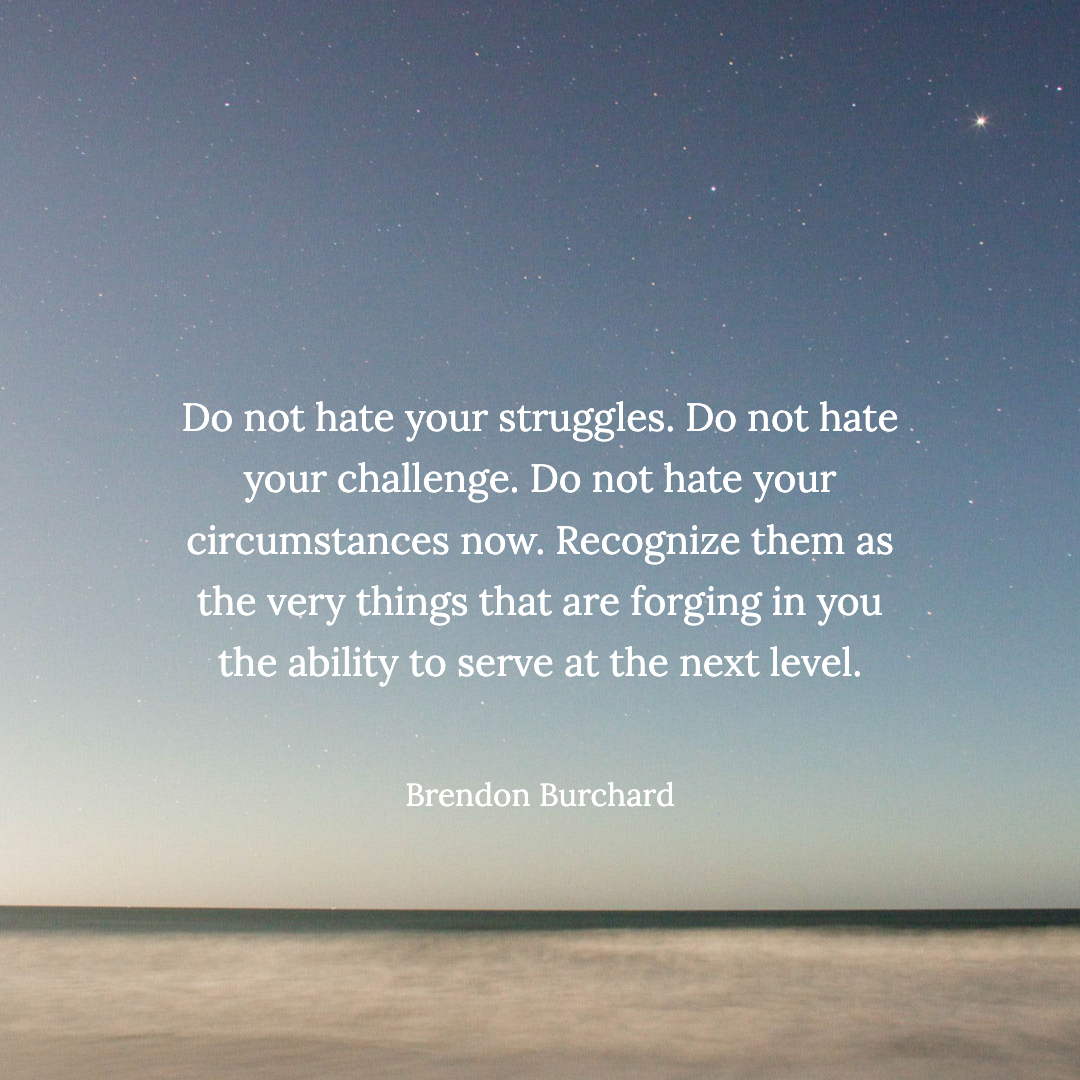
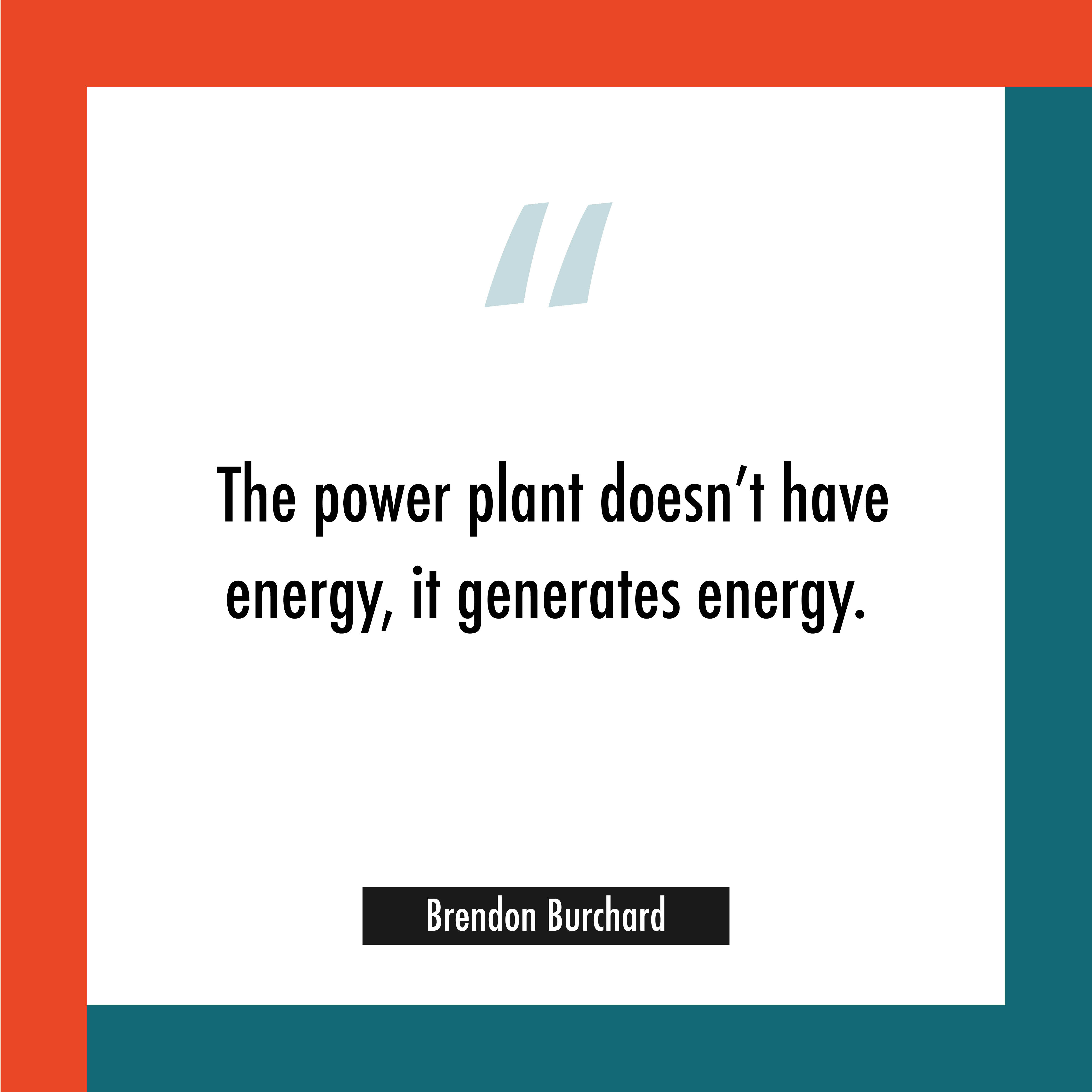
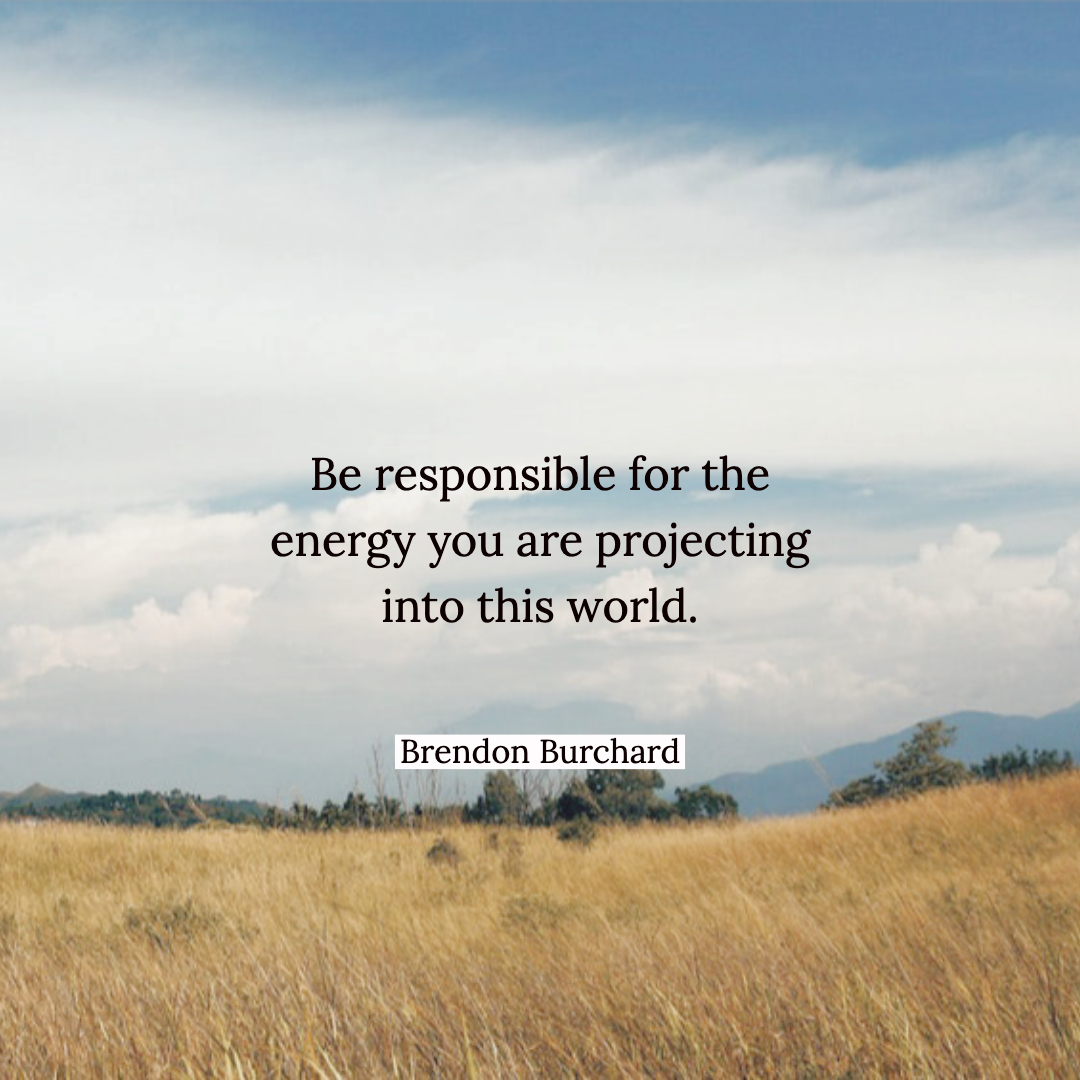
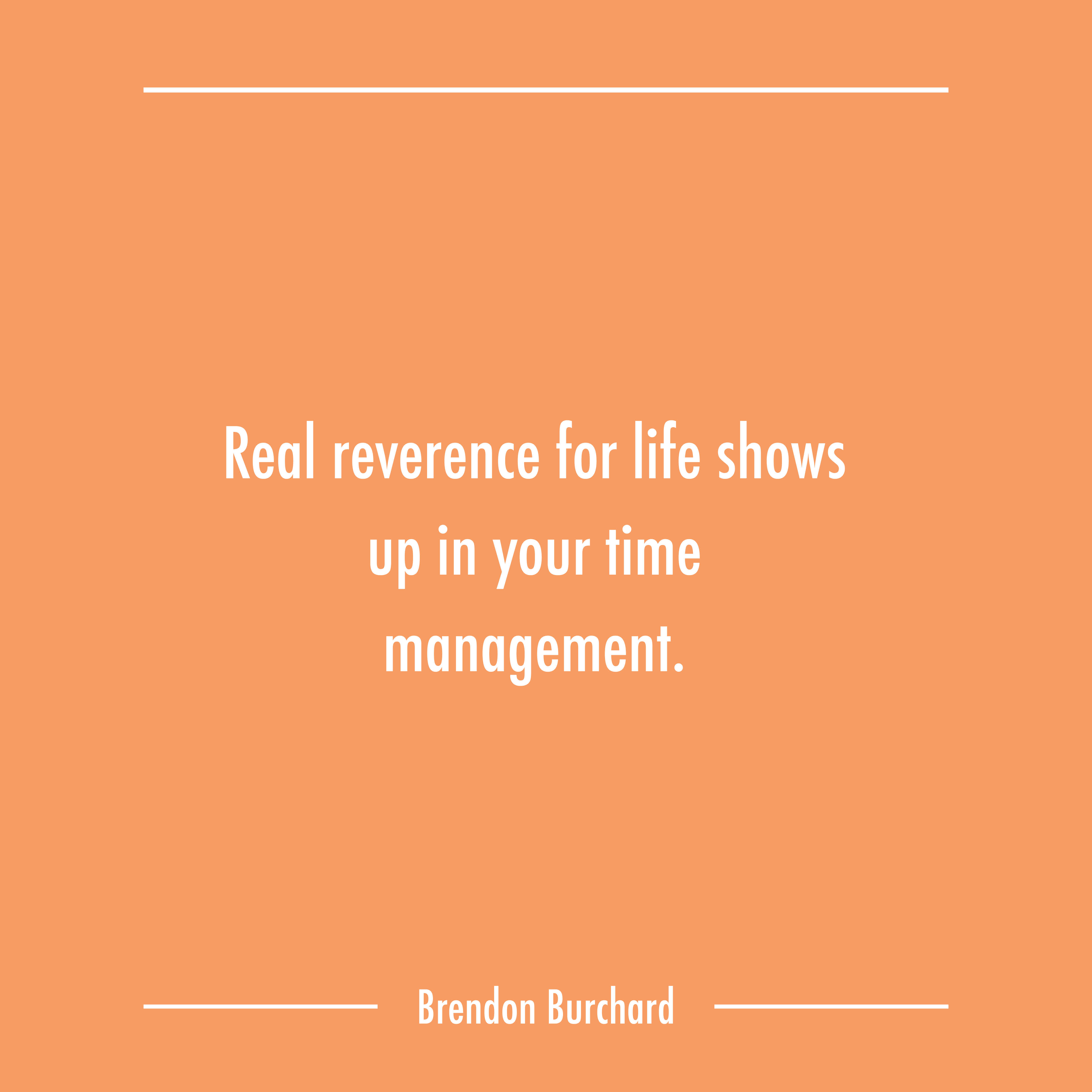
FULL TRANSCRIPT
[The following is the full transcript of this episode of The Brendon Show. Please note that this episode, like all TBS episodes, features Brendon speaking extemporaneously–he is unscripted and unedited. Filmed in one take, The Brendon Show has become one of the most viewed unscripted, direct-to-camera self-help series in the history of YouTube. It has also been the #1 Podcast in all of iTunes and is regularly in the top podcasts in Self-Help and Health categories around the globe. Subscribe to the free motivational podcast on iTunes or Stitcher.)
Hey guys, it’s Brendon Burchard, and I’m filming today in Puerto Rico, which I’m so excited about. You can obviously tell. It’s an unbelievably beautiful place, and it’s really brought me back to some of the major decisions I’ve made in my life. As some of you know, my real journey in personal development began when I had a car accident in the Dominican Republic.
I’m in Puerto Rico today, but for me, the magic of the Caribbean, the magic of the humidity, the beach, the sand, the ocean, makes me really reflective and definitely appreciative about life. Look at this, it’s beautiful.
I thought I’d share with you today the four major decisions of my life that really shaped the quality of my life, because we’re always asked that.
You guys have asked on Instagram, Facebook, through DMs, and here on YouTube: “What made the difference for you in your own struggles, in your own life as you tried to build your life, brand and career?”
I’m always asked about that, and I always say, it comes down to the same four decisions.
1. Have reverence for your life.
The first decision is to have reverence for your life every single day.
I know that sounds very personal development-hype, but my story began with what I call mortality motivation. That was when I was a 19-year-old kid, I had that car accident, and that inspired me, even though it was terrifying and very scary and upsetting in my life, it taught me that – hey kid, life is precious. You are not guaranteed tomorrow, you are not guaranteed next week, you’re not guaranteed three months from now or three years from now. You don’t get to pursue your dreams potentially for 10 or 20 or 50 years. Nothing is guaranteed. And if you understand life is precious, then you really want to drink from it, feel it, experience it, connect with it. And that was everything for me, that mortality motivation.
The motivation to live life fully transformed my life.
That decision to say, you know what, every morning I wake up and say, “I’m going to have reverence for this. I’m going to appreciate and be grateful for this breath, for this day, for this moment, for the opportunities we all have every single day. I’m going to take that seriously.”
Sometimes, people hang out with me, and they’re like, “Man, you’re kind of serious. You’re intense.” Yeah, because you know what? I know I might only have today. I understand that, and some people, they avoid that. And then one day, they’re 90 years old, and they’re like, “Oh my God. I didn’t live my life.”
Or one day, you get sick. Or one day, you lose a friend. And then you go, “Oh my gosh. Life is precious.” And all I would encourage you to do is remind yourself of that every day.
Don’t wait for something negative or traumatic or some tragedy to strike before you say, “You know what? I’m so grateful to be alive.”
For me, operating my day with a reverence and connection to this blessed moment, a reverence and connection to the life that we have, makes me live each day in a more grateful and honoring place.
Just imagine that. Imagine your Monday, your Tuesday, your Wednesday, your Thursday, Friday, Saturday, and Sunday. If you began the day with more gratitude and respect for life, you’d be more willing to use your time intelligently. Part of motivation mortality is, “Hey, I’d better use my time wisely.” I tell people all the time: if you want to know if you appreciate your life, it’s not just about the gratitude journal at the end of the day.
Real reverence for life shows up in your time management.
How are you really using your days on this earth? What did you really do last week? What did you do last month? Are the priorities you’re setting in your life real? What people do is go through the motions or react so much, they end up living a decade and it wasn’t even their life. They were just doing what other people told them. They weren’t on their own path.
When you realize life is short, you say, “I’d better walk my path. I only get this shot. This is a blessed day. I’d better take this time seriously.”
Reverence for life shows up in how you manage your time, and that decision for me was every day. I’ll have reverence for life, and part of that is gratitude. Part of that is respecting it, and part of that is making sure I’m on my path and I’m living my day, my life, and not somebody else’s life.
2. Bring the Joy to Life.
The second big decision that flowed from that and as serious—but maybe not as intense—is the decision to bring the joy to life.
A lot of people wait for positive emotion. They think, “Well, when I get that promotion or when I make that money or when the clients take me seriously or when I get that following. Or when something happens, when I have the kids or when the kids leave.”
People think, “Someday, I will be happy. Someday, something will happen, and all of a sudden, life will be good.”
A lot of people wait for someday, and that day never shows up.
Here’s the dominant metaphor in my life that really shifted me:
The power plant doesn’t have energy, it generates energy.
A power plant takes energy from one source and it transforms it, stores it, and then transmits it to a higher source.
Maybe you are surrounded by negativity. Maybe you are surrounded by a lot of the vitriol of today’s culture and the negativity, the hate, and the people who don’t support you. Maybe there is that energy. But your job is to take the energy of life that can sometimes seem negative and transform it.
Ask yourself, “How can I see this in a different perspective? How can I not take the energy they’re giving me, but rather generate the energy I want to experience in life?”
If you ever came over to my house, or if I was throwing a party and you called me and said, “Hey Brendon, I’m coming to your house, what should I bring?” I will never say, “Bring wine or appetizers or something like that.” I say, “Bring the joy. Show up to my house in a good attitude.”
I always tell people,
“Be responsible for the energy you are projecting into this world.”
What most people are doing is being a reflection of the energy they feel in the immediate moment or a reflection of the energy that other people have been giving them for days or weeks. For a lot of people, their energy is the energy they felt because their parents treated them a certain way, and now they reflect that.
They’re reflecting the energy that’s been around them, versus taking control of their own mind and saying,
“Okay, what thoughts can I generate? What’s my self talk? What are the intentions I want to have, and what’s the energy I want to create?”
I can’t stand being around people who don’t own their energy. They get angry or upset about little things, and I think, “Hey, if life is short, you’re going to really care about your energy. And the people around you—the kids, your family, your friends—they want to see you have great energy. Stop pretending that that’s not a choice. Your energy over the long term is choice. Your attitude is choice.”
It doesn’t mean that something bad that happens today can’t make you upset. That doesn’t mean that you can’t have the immediate emotion of discouragement, disappointment, anger, sadness. That stuff can come up in reaction to a moment or a circumstance. But if it’s still here tomorrow, that is a choice.
Now, some will say, “You can’t say that’s true, Brendon.” And I can tell you it isn’t true for some people. For people with mental illness and disorders, we can’t go around saying, “Control your attitude.” They have a mental illness.
But if you don’t have that, you have to realize you’ve got a choice here. Over the long term, we can all use our thoughts to create better energy.
All of us, even those who have mental disorders, ultimately when they have therapy, when they have training, the whole approach is to help them make better decisions for themselves and improve their own thoughts.
We’re always trying to improve our own thoughts.
For some people, when there is a major psychological challenge or disorder, they might need real support or therapy. They might need real support, like biochemistry alterations that will help them feel good, or medication. I get all of that.
But I’m here to say, for most of us, over the long term (a week, two weeks, three weeks, four weeks): your attitude, your choice. Your mood, your choice. Your temperament, your choice. Your personality, your choice. Your energy and life, your choice. And either that choice is being made with will and intention and discipline and consciousness, or you’re just going through the motions and reacting like a dog.
That’s so hard to tell people that, but isn’t it true that sometimes we can be little brats? We can react to something and we get so upset about it, and later on think, “Why did I let myself get so upset about that?”
So I want to let you know, nothing I’ve said has been judgmental because I had a mental disorder. I had a brain injury, as many of you guys know, in 2011. I’ve been in parts of my life where I couldn’t control my thoughts, my mind, my feelings. So I have no judgment to those who are really struggling with it because I needed support for it.
I’m that guy who’s spent my entire career saying, “If you need support and you’re struggling, get it. Go get a therapist, go see a professional. Don’t minimize that.”
We need to not have a stigma about getting support and help. I needed to do that when I had my brain injury. But even through that process, you know what I learned?
All you’re ever going to be doing is working on mastering your mind.
You can get all the support in the world, but you’ve still got to do the hard work of mastering your mind and ask, “What are my thoughts? How did I react to that? How should I, in the future, react to that?”
Shouldn’t it be true as we all mature and grow and get better in life, that we should become more masterful of our own emotions, our own mind, our own thoughts, our own feelings, our own energy?
So for me, the major decision was: bring the joy. I’m going to be a person in any given situation who brings the positivity into that situation.
Even if everyone else is upset, everyone’s negative, I’m going to find some way to bring humor, make people feel comfortable, decrease people’s stress, and point out something beautiful.
I’m going to be that person who, when we leave, people think, “That guy’s pretty joyous.” And some people say, “Well, Brendon that’s fake. You know, that’s just fake. That’s just not real.” Well, you know what? Sometimes, if you have to use your will and your mind to be happy, congratulations, because you know what is also not good? Going through the motions in life and just feeling terrible all the time because you never made a choice to feel better.
So if you’ve got a stir in your heart, in your soul, that energy that’s better than where you are usually, some people may say, “Well that’s fake.”
That’s called trying to be better. That’s called giving effort to life versus just taking what lands on you. I think that’s really powerful.
For me, personally, choosing to be a person who takes and brings joy from the small things of life, not waiting for some big, huge thing, but bringing the joy also means to me noticing, appreciating, being aware, being conscious of the beautiful moments we have.
Look at this view that I get to film here today with. I’m so grateful for this opportunity because you all, most of you, I hope, know where I came from.
I was the small kid from a small town in Montana, having really difficulty growing up. I grew up with nothing, but I did grow up with two parents who loved us, trying to raise us four kids.
There was just blight and economic nothingness all around us. But my parents, I saw them try, and I saw them try to make life fun for us. They brought the joy, and I forgot that some stages in my life. Then, after the brain injury, I thought, “I’ve got to take control of my own mind again and bring more joy in my life.”
How can you bring more joy into your life?
3. Honor the Struggle.
The third big huge decision for me was to honor the struggle.
That means as you’re trying to climb that next mountain of success, know it’s going to be a harder journey than the first one was. But what most people do, is they bemoan the struggle. They complain about the struggle. They hate the struggle. Every time there’s a challenge, they’re the person who gets discouraged by it, and they quit. They approach their day with dread because they have to do hard things.
But successful people, because they have to do hard things, they honor that. They go, “Oh, that hard thing? That’s going to make me better. This challenge I’m going through that requires discipline and consistency, it’s a struggle, but you know what? I will honor that, because I know that will forge within me a better skill set, more mastery, more capability, another new level of ability to serve other people. That’s what comes from honoring the struggle.”
So many people have to drive to work every day. They have to commute. And after 10 years of commuting, they are still complaining about it. If you have to do something every day, and you are still complaining about that, that means you have not tapped into this thing called consciousness. You have to be a person who, when you’ve got to do something you don’t want to do but it is necessary, you bring the joy to it or you honor it.
You go, “Okay, it’s not what I wanted, but I’m going to use it to make me better.” I don’t pretend that’s easy because some struggles are really difficult and really real.
I have to have the same mindset in very difficult circumstances that I coach some of the highest-performing people in the world. They lose a parent or they lose a family member. They didn’t win the gold medal. They got silver. Their business didn’t sell for the value they wanted. They got made fun of on the internet, their company crashed.
It’s the drama I deal with every day, and I see the difference. When some people really struggle, when something gets messed up, they get so angry, and other people, they go, “All right. Let me adopt a learning mindset here. Let me not get disappointed or discouraged or hate it or complain or bemoan it or blame other people. Let me just ask, what did I learn that will make me better for this journey?”
Because life is a journey, and it’s going to get harder, especially if you want to give more, serve more, grow more, because the more ambitious you get to make a difference, obviously, that’s a new mountaintop every single day as you’re trying to climb it.
People judge you, people hate on you. People make fun of you. Your business will fail, things won’t work. If you can learn to honor that process, you don’t quit. If you hate the process, you quit. Because anything that hate is applied to quickly dies.
Do not hate your struggles. Do not hate your challenge. Do not hate your circumstances now. Recognize them as the very things that are forging in you the ability to serve at the next level.
Honor the struggle.
4. Adopt a Role Model Mindset.
The fourth big decision I made in my life was to adopt a role model mindset.
When I was a 19 year old kid, after my car accident, I decided I wanted to make a difference in this world. My car accident told me to LIVE. That’s the mortality motivation stuff. It taught me to love, because I realized that I wanted to connect with other people. And it taught me to matter, to try and make a difference in my life.
Because if life is short, I want to know I did something with it, that I helped other people.
One of the things I did after that was studying leadership. I would read about servant leadership from Robert Greenleaf and all these great theorists and great leaders of the past. I started reading biographies of the great people of life. As I read these biographies, what became really clear to me was something was going on in their mindset. They were different than other people in some ways.
What was that difference?
One of the differences was that in some way at some point, not always their whole life, but at some point in their life when everything changed, they adopted a role model mindset.
The role model mindset says, “How can I deal with life as my highest self, and how can I do it in a way knowing that I’m an example for other people?”
You might not think of yourself this way, but you are an example right now. So what are you an example of? Are you an example of positivity? Are you an example of helping other people? Are you an example of someone who’s committed to their dreams? Are you an example of somebody who’s in good health? Are you an example of somebody who has compassion and empathy for other people? Are you being a role model for the kids, for the team, for the people who see you on social media? Are you a role model, or are you just going through the motions?
The ultimate killer of what we call the high-performance experience, living life at a heightened level, is just going through the motions.
But high performers, successful people, they don’t go through the motions. They say, “How can I do this with excellence? Because other people are going to see this, and I want to inspire other people.”
If you really want to inspire other people in your life, you must first accept the role model mindset. It makes you filter your behavior. Think, “Am I doing this well? Am I being a good example for them? Am I setting the tone? Is this the energy I’d love other people to adopt?”
When you’re a role model, you’re not a jerk. When you’re a role model, you don’t treat people poorly. When you’re thinking about being a role model, you spend more time with the kids, more time with the art, more time with other people. When you’re trying to be a role model, you’re thoughtful, you’re intentional, you’re joyous, you’re grateful.
Nothing about trying to be a role model is a jerk. It forces you to step into your highest and your best self.
So think about your behavior over the last month. Have you been a role model for the kids, for the team, for the people around you? Or have you just been going through the motions? Going through the motions is not going to give you your breakthrough.
Trying to lead others, serve others, and be an example of goodness in this world is important.
As I’m filming this in Puerto Rico, in about 72 hours some of my best friends in the world are flying in. They’re all inspiring human beings. And my only request of them in bringing them here will be something simple I always say to people:
Whatever you do in your life, double down on your goodness.
Whatever you do that serves good to the world, do more of that, because that’s where your real role modelness comes into play. Because when you’re doing what you do and you’re doing it well, and you know that it’s contributing, it’s good.
Do more good work, give more goodness to the world because that’s how the role models are always thinking. A role model thinks,”How do I do good? How do I do things with excellence? How do I do good for the world?”
So my request to you, if any of these four decisions helped you, the first decision, having reference for life, taking life seriously, operating the day from a place of mortality motivation, knowing life is short, so you show up…
If this idea of bringing joy and being responsible for your energy and feeling joy, deciding to take joy in the small things in life and bringing joy to your friends and your family and those you lead.
If this idea of honoring your struggle instead of complaining about it, bemoaning it or seeing it with dread, and honoring it as a process that will make you better.
If this idea of being a role model, if that really serves you, if you can adopt that, I believe your life will change. If it really does serve you, please just share this video with somebody today who you feel needs some inspiration. Someone who maybe if they made these decisions, their life might be different.
If you’re new to my world, now I call you all Team HPX. And HPX stands for the High Performance Experience. It’s people who want to live life at that next level of experience, a higher level of experience; HPX: High Performance Experience.
If you want to be part of this and you want to share this, then just use #TeamHPX so I can see you sharing this video and talking about it. Because I just feel like you’ve got some major decisions to make in your life too, and if the decisions that guided me or helped me or supported me can support you, then please share this video.
Be part of the community.
Listen, if you’ve not yet seen the videos with me and my wife on Instagram Live, she always has this saying. She always says, “Every day, you get a choice. You can choose to be average, or you can choose to be extraordinary.”
So go share this video, my friend. And today, go be extraordinary.


